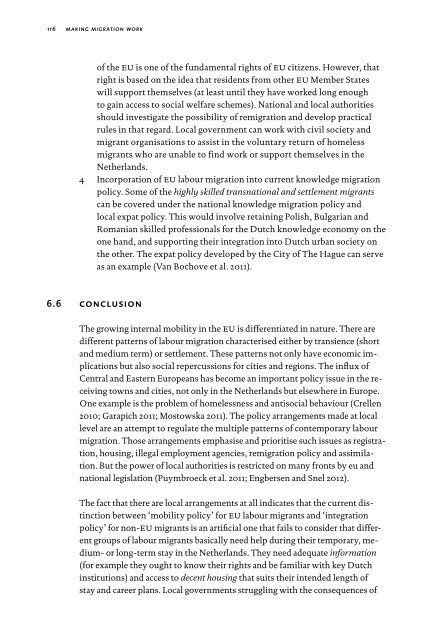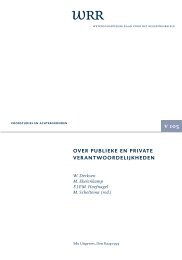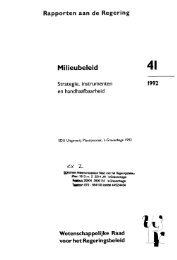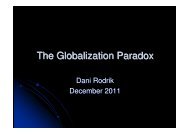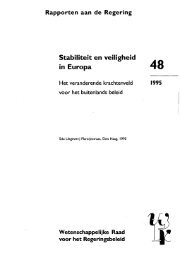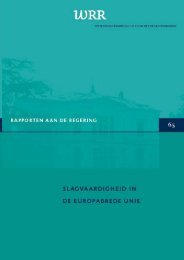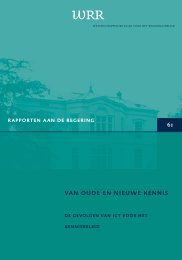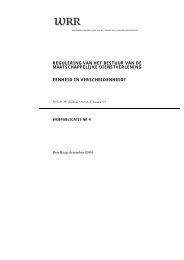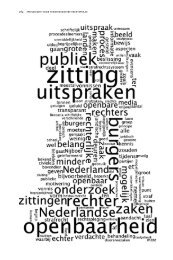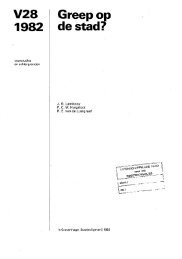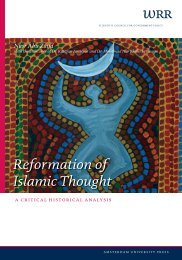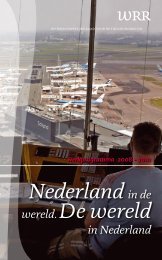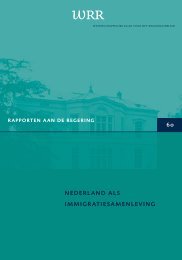Making Migration Work - Wetenschappelijke Raad voor het ...
Making Migration Work - Wetenschappelijke Raad voor het ...
Making Migration Work - Wetenschappelijke Raad voor het ...
- No tags were found...
Create successful ePaper yourself
Turn your PDF publications into a flip-book with our unique Google optimized e-Paper software.
116making migration workof the eu is one of the fundamental rights of eu citizens. However, thatright is based on the idea that residents from other eu Member Stateswill support themselves (at least until they have worked long enoughto gain access to social welfare schemes). National and local authoritiesshould investigate the possibility of remigration and develop practicalrules in that regard. Local government can work with civil society andmigrant organisations to assist in the voluntary return of homelessmigrants who are unable to find work or support themselves in theNetherlands.4 Incorporation of eu labour migration into current knowledge migrationpolicy. Some of the highly skilled transnational and settlement migrantscan be covered under the national knowledge migration policy andlocal expat policy. This would involve retaining Polish, Bulgarian andRomanian skilled professionals for the Dutch knowledge economy on theone hand, and supporting their integration into Dutch urban society onthe other. The expat policy developed by the City of The Hague can serveas an example (Van Bochove et al. 2011).6.6 conclusionThe growing internal mobility in the eu is differentiated in nature. There aredifferent patterns of labour migration characterised either by transience (shortand medium term) or settlement. These patterns not only have economic implicationsbut also social repercussions for cities and regions. The influx ofCentral and Eastern Europeans has become an important policy issue in the receivingtowns and cities, not only in the Netherlands but elsewhere in Europe.One example is the problem of homelessness and antisocial behaviour (Crellen2010; Garapich 2011; Mostowska 2011). The policy arrangements made at locallevel are an attempt to regulate the multiple patterns of contemporary labourmigration. Those arrangements emphasise and prioritise such issues as registration,housing, illegal employment agencies, remigration policy and assimilation.But the power of local authorities is restricted on many fronts by eu andnational legislation (Puymbroeck et al. 2011; Engbersen and Snel 2012).The fact that there are local arrangements at all indicates that the current distinctionbetween ‘mobility policy’ for eu labour migrants and ‘integrationpolicy’ for non-eu migrants is an artificial one that fails to consider that differentgroups of labour migrants basically need help during their temporary, medium-or long-term stay in the Netherlands. They need adequate information(for example they ought to know their rights and be familiar with key Dutchinstitutions) and access to decent housing that suits their intended length ofstay and career plans. Local governments struggling with the consequences of


